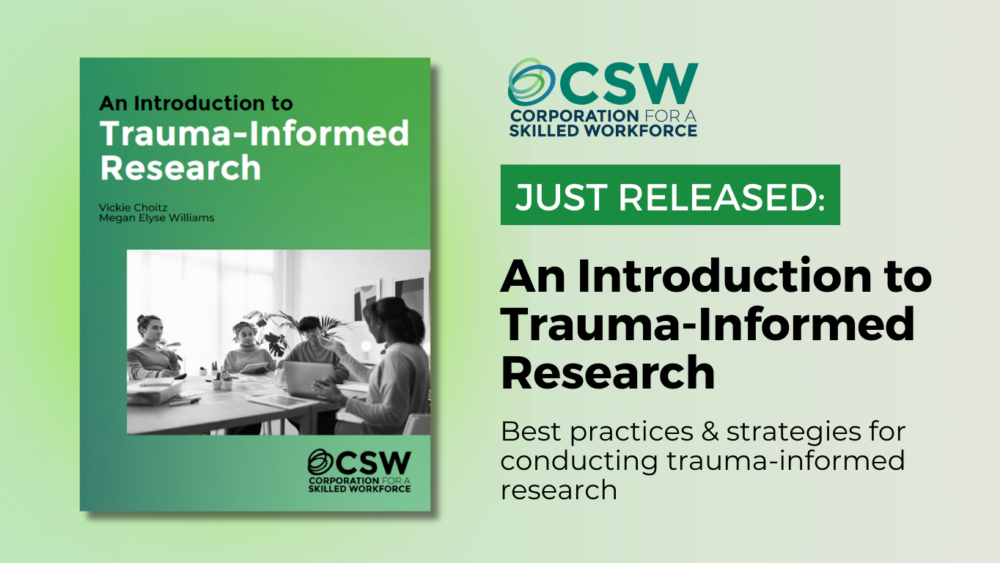Last year, we released a blog on how to conduct trauma-informed research. The response was clear: trauma is an experience present in many workplaces, and the ability to conduct trauma-informed research is a vital tool. Research shows that trauma can negatively impact people’s ability to succeed and thrive at work and in life. Researchers who conduct qualitative research with workers, learners, and community members who may be affected by trauma are increasingly asking how they can design and implement trauma-informed research practices that are respectful of their participants’ lived experiences and do not perpetuate harm.
To make our guide more practical and accessible, we have updated the content from that blog and released it in a newly-published PDF guide. The new Introduction to Trauma-Informed Research includes all the best practices and recommendations from the original blog, with the addition of accompanying printable checklists.
Why Shape Research to be Trauma-Informed?
Implementing trauma-informed research best practices provides researchers ways to reduce or address the potential harm that could arise from qualitative research. Trauma-informed research also garners more realistic and useful information. If participants feel safe and trust the researcher, they will stay engaged and provide more truthful and richer answers, which can lead to more effective and relevant workforce and post-secondary solutions and programs.
Trauma-informed research also complements and builds on other important approaches researchers are incorporating into their work, including human-centered design, racial equity, participatory research, and cultural responsiveness. The workforce field is continually learning how critical it is to center the voice of participants in research and programs, truly understand their lived experiences, and design research and programs that are grounded in real lives. This requires talking with participants in careful, authentic, and intentional ways, which means taking a trauma-informed approach.



Comments are closed.